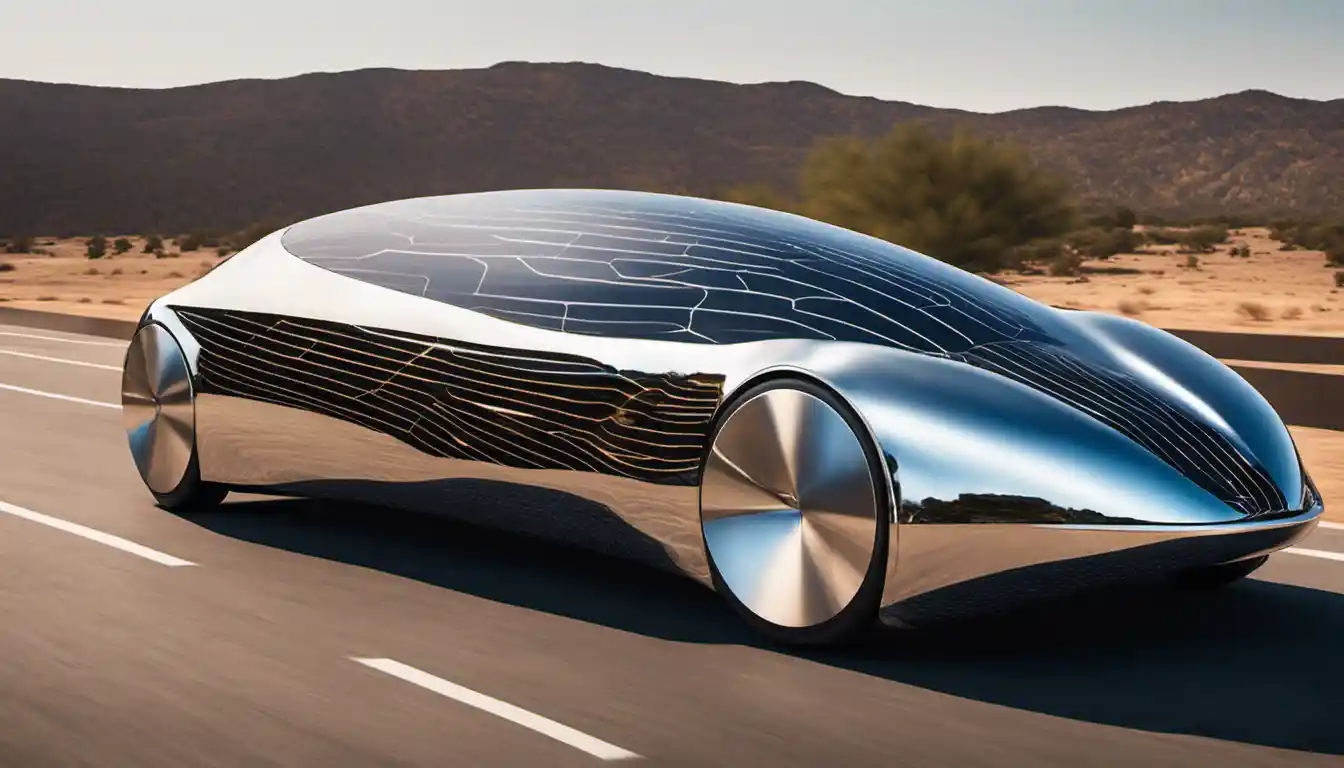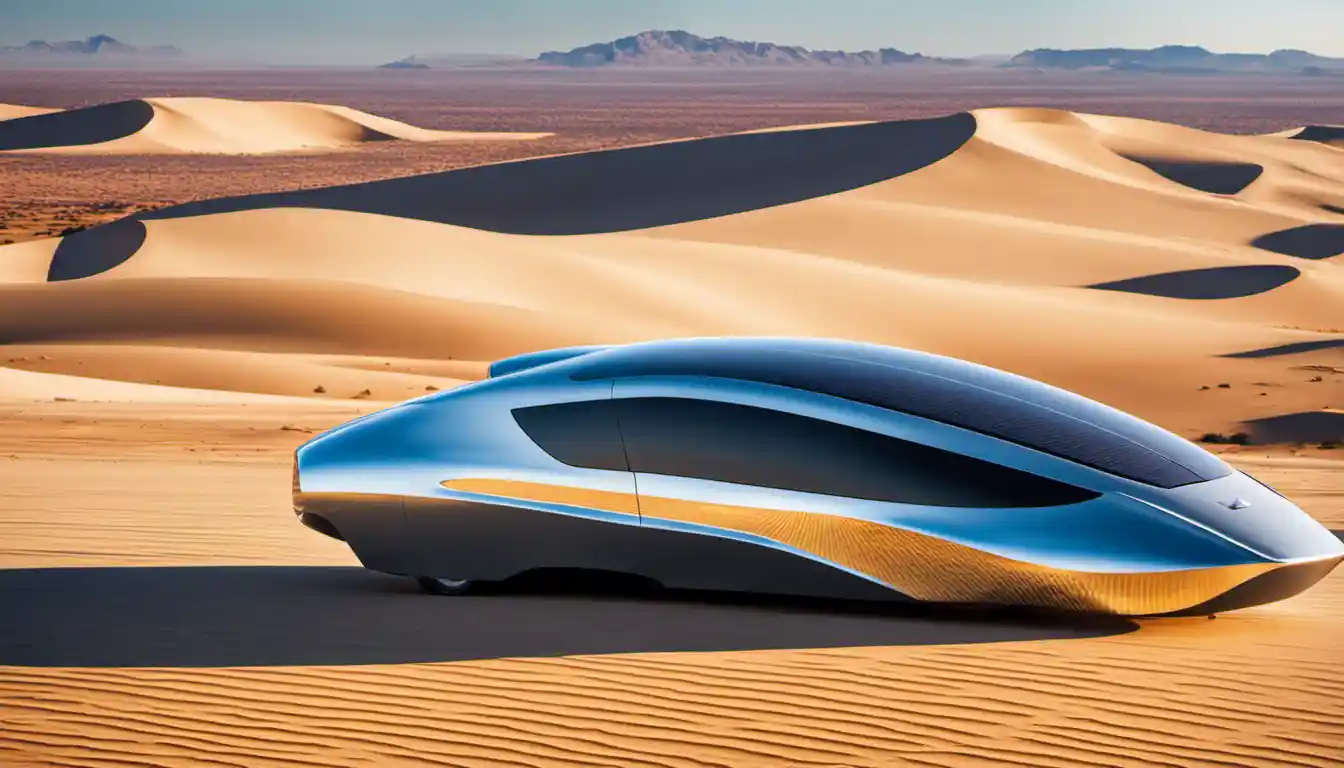The Future of Solar Powered Vehicles
Solar powered vehicles are automobiles that are driven by solar energy converted into electrical energy. These vehicles consist of photovoltaic cells that capture solar rays and convert them into electricity, which is then used to power the motor. Currently, solar vehicles are not widely used for everyday transport, but are mainly utilized for research, development and competitive racing purposes.
Embracing the Power of the Sun
The sun has been a constant and unlimited source of energy for our planet since time immemorial. But it is only in recent decades that we have harnessed this abundant reservoir for powering our homes, devices, and now, our vehicles. The idea of solar powered vehicles isn’t just a brilliant innovation; it’s an opportunity to sustainably reshape our transportation future.
See also: How Do Solar Cars Work: Your Ultimate Guide to Understanding Solar Vehicles
Advantages of Solar Powered Vehicles for the Environment
There is no denying that our reliance on fossil fuels has been damaging to our planet. Solar powered vehicles, on the other hand, offer a multitude of environmental benefits. They produce absolutely no emissions, not only reducing our carbon footprint but also improving air quality. Furthermore, since solar power is renewable, these vehicles are a more sustainable alternative to traditional gasoline-powered cars.
See also: How Many Solar Panels to Charge an Electric Car? Your Complete Guide
Powering a healthy planet with Solar Vehicles
With each vehicle that switches to solar power, we reduce our global fuel consumption. Imagine if every car that lined our highways were powered by the sun. The beneficial impact on our environment would be incredible. From reduced greenhouse gas emissions to a drastic decrease in air pollution and fossil fuel dependency, solar powered vehicles hold the key to a healthier, cleaner planet.
See also: How Much Do Solar Cars Cost? A Comprehensive Pricing Guide
The Efficiency of Solar Powered Vehicles
An undoubtedly significant advantage of solar powered vehicles is their energy efficiency. They convert solar energy directly into electricity, bypassing the inefficiencies associated with the extraction, refining, and transportation of fossil fuels. They also don’t waste energy while idling and even generate power when stationary under the sun.
See also: Solar Powered Cars Pros and Cons: A Comprehensive Guide to Green Transportation
A New Kind of Fun: The Thrill of Solar Powered Driving
Driving a solar-powered vehicle is not just about embracing renewable energy, it’s about a whole new driving experience. Imagine a whisper-quiet engine, save for the subtle hum of electric power. It feels like the future, and it’s thrilling.
See also: Best Time to Charge EV with Solar Panels: Maximize Efficiency and Savings
Solar Powered Cars for Sale
Current Solar Powered Passenger Car Design

Solar powered cars for sale today come with sleek, aerodynamic designs. They are typically lightweight with a lot of surface area to accommodate as many photovoltaic cells as possible. The Sion, by Sono Motors is an example of this, featuring 248 solar cells embedded into the car body.
See also: Why Electric Cars Don’t Have Solar Panels
Solar Powered Recreational Vehicle Sales
More than just cars, the solar power wave has also hit the recreational vehicle market. Today, there are numerous models of solar-powered RVs that allow for off-grid living and travelling, further reducing our impact on the environment.
See also: Solar Panel vs. Dynamo Hub (Efficiency Report)
Market and Availability
Despite being a relatively new field, there’s an increasing demand for cars that run on solar power. Presently, the market is sparse but growing. Companies such as Sono Motors and Aptera Motors in the USA and Lightyear One in the Netherlands are leading the way.
See also: Portable Solar Panels For Electric Cars
Solar Powered Cars
See also: How Fast Can Solar Cars Go? Discover the Speed Limits of Eco-Friendly Transportation
How Solar Powered Cars Work
The solar cells on the surface of the vehicles capture sunlight and transform it into electricity. This electricity is then used to charge a battery, which powers an electric motor. The key component here is the photovoltaic effect, the process by which solar energy is converted into electricity.
See also: What Size Solar Panel to Keep Car Battery Charged: Your Complete Guide
Advancements in Solar Car Technology
Over the years, there have been significant advancements in solar car technology, particularly in terms of efficiency and capacity. Newer, more efficient solar cells, higher-capacity batteries, and lightweight materials have all contributed to making solar powered vehicles an effective and increasingly practical mode of transportation.
See also: Can You Charge a Tesla with Solar Panels? Uncover The Truth Here!
Mileage and Charging: The Efficiency of Solar cars
It’s also worth noting the impressive mileage and charging capabilities of solar-powered cars. While range varies between models and sun exposure, the aim is to be as self-sufficient as possible. In ideal conditions, some solar-powered cars can cover impressive distances each day using just the power of the sun.
See also: Prius Solar Panel Kit (When It’s Worth It)
Manufacturers of Solar Powered Vehicles
Who manufactures solar cars? Let’s take a look at some of the pioneering manufacturers in the field of solar powered vehicles.
See also: Solar Panel For Car Dashboard (What-Where-Why)
Overview of Companies Manufacturing Solar Cars

At the forefront, we have companies such as Sono Motors and Aptera Motors who are bringing their vision of solar transportation to life.
See also: Best Solar Panel For Jeep (Sizing and Power Solutions)
Sono Motors
Sono Motors, a German startup, has been making waves with their innovative car design. Their prototype, Sion, integrates solar cells into the body of the car, making every surface work to capture the sun’s energy.
See also: Solar Panels For VW (Cool Tips + Tricks)
Aptera Motors
On the other hand, Aptera Motors takes a different approach. Their three-wheeler design is optimized for aerodynamic efficiency. This solar-electric vehicle boasts a long range and never needs charging for most daily use.
Patented Solar Technologies in Vehicles
The Value Proposition of Solar Technology
The patented technologies used in solar powered vehicles are part and parcel of their value proposition. They demonstrate a company’s ability to innovate and be at the forefront of a fast-growing industry.
A look at Sono Motors’ Patented Solar Technology
Sono Motors has patented a technology called viSono. This innovative technology allows solar cells to be integrated into a wide variety of surfaces. In Sion, viSono powers the vehicle for up to 34 kilometers per day, solely with solar energy.
Innovations in Solar Tech for Enhanced Vehicle Performance
Innovations in solar technology are continuously enhancing vehicle performance by improving energy capture, storage, and delivery. For instance, improvements in solar panel efficiency allow cars to generate more power even on cloudy days.
Making Every Vehicle Solar
Envisaging a World without Fossil fuels

Imagine a world where every vehicle on the road is solar powered. There would be no more gas stations, no more oil changes, and no more CO2 emissions from cars. Our air would be cleaner, our health would be better, and our planet would have a chance to heal.
Transitioning from Conventional to Solar Vehicles
The transition from conventional cars to solar-powered vehicles won’t be immediate or easy, but each step towards it is a step towards sustainability. As this transition begins, we will see more solar-powered cars for sale, more infrastructure to support them, and wider public acceptance.
Commercial Fleets: The Case for Solar Buses & Refrigerated Vehicles
Beyond personal vehicles, solar power also has the potential to revolutionize commercial fleets. Solar-powered buses and refrigerated vehicles, for instance, could significantly reduce the transport sector’s carbon emissions.
Current Customer Testimonials and Experiences
Customers who have made the switch to solar powered vehicles are often thrilled with their decision. Reduced fuel costs, minimal maintenance, and the knowledge that they are contributing to a healthier planet are just a few reasons why they’re making the switch.
Future Direction for Solar Powered Vehicles
The Pioneering Future of Mobility
The future of mobility shines bright with solar powered vehicles. As technology advances, so will the capability and efficiency of these vehicles. Soon, we could see solar cars as a commonplace sight on our roads, and that is a future to look forward to.
Solar Powered Vehicles: Impact on Global Transportation
The impact of solar powered vehicles on global transportation is expected to be revolutionary. As more and more countries adopt policies to reduce carbon emissions, an increase in the adoption of solar powered vehicles is inevitable.
What to Expect: Future Trends and Perspectives
There is still a lot to expect in the future of solar powered vehicle dynamics. Increased efficiency, extended battery life, and even solar-powered charging stations are all things we can look forward to. The road to a sustainable transportation future is right in front of us, powered by the unlimited energy of the sun.



